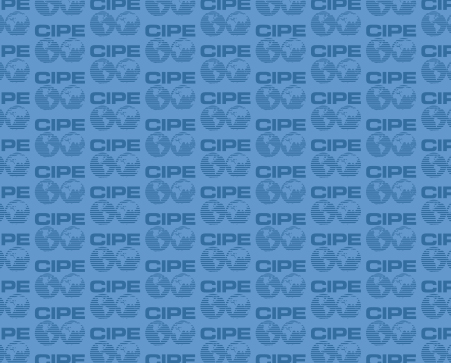
The private sector is a key actor in efforts to promote economic growth, reform the business climate, and strengthen democratic policymaking worldwide. Businesses possess the know-how to analyze economic conditions and identify obstacles and opportunities for growth, while governments have the means to pass business-friendly legislation.
From a democratic point of view, a vibrant private sector contribution to dialogue expands participation in policymaking and civic engagement in governance, improves the quality of business representation, and supplements the performance of democratic institutions.
The latest case study from the forthcoming publication Strategies for Policy Reform discusses CIPE’s experience assisting the advancement of policy dialogue in Senegal that supports market-oriented reforms and private sector development.
As Senegal’s largest, most representative and well-organized business association, l’Union Nationale des Commerçants et Industriels du Senegal (UNACOIS) has played a key role in the country’s policymaking process by engaging the government in public private dialogue. At regional and cross-regional dialogue sessions jointly organized by UNACOIS and CIPE, UNACOIS members identified the nation’s complex tax code and high tax rates for SME operators as a major cause of informality in the SME sector. With CIPE support, UNACOIS developed an evidence-based policy paper on tax reform, held public-private dialogue meetings with relevant stakeholders, and presented these recommendations to government officials.
Teodora Mihaylova is Research Coordinator at CIPE.
Published Date: October 23, 2014